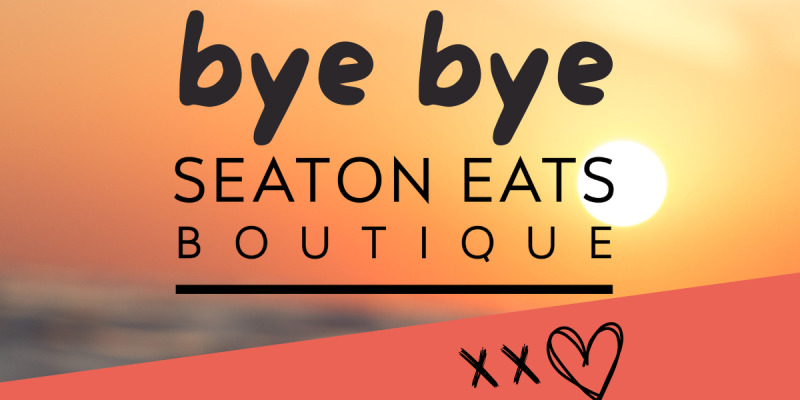
Does the hospitality industry really need tips in this day and age?
To prevent businesses creaming off tips new legislation was brought in on October 1st 2024. The Employment (Allocation of Tips) Act 2023 is designed to prevent businesses making any deductions from tips (other than for tax). It’ says that companies need to provide fair and transparent guidelines for the allocation of tips.
This got me thinking again about tipping. While this legislation has its place, is the culture of tipping someone for good service still relevant? What is the messaging behind such gestures, and what would be the impact of not leaving a tip?
Why do people leave tips?
Years ago when I first started working hospitality age 16 there was no minimum wage. My second job was in a restaurant in a swish part of London. It wasn’t posh, just a small chain of French restaurants with decent food. It was humming at the weekends with people drinking in the bar and a high turnover tables.
Pay was structured in that waiting staff received £15 for their shift of about 8 hours. That equates to about £30 in today’s money, an hourly rate of about £3.75. The rest of the wages were made up from tips. And the thing is, the company that owned this chain of restaurants knew very well that staff would make twice or 3 times their wage on a busy night, so they could get away with such shitty wages. It meant that they always had staff for their busy shifts. They could get way with paying little to no national insurance on PAYE, and staff got cash in hand at the end of the shift. No one ever left a tip on a card. But, the rub was when you got rota-ed on to a Tuesday day time shift. Far fewer customers and a lot more cleaning to do, for pay that was peanuts. Tips were a lifeline then. You gave up your weekends and charmed the customers, even the rude ones, to make the job of a waiter pay. As recompense we may have had a few swift vodkas in our cokes.
Changes to employment legislation…
Then along came the Labour government in 1997 and introduced the minimum wage. It was small but it outlawed £15 pay per shift. In 1999 the minimum wage for 21 years and over was £3.60, or about £7.20 in today’s money. Changing legislation is one thing, but it takes time for culture to change.
…but I still loved my tips
Fast forward a few years to the mid noughties where the minimum wage had increased to over £5 per hour but tipping culture was still strong. As a mature student with loans and grants and a wage and tips I felt flush and there was enough to save up for a 4 week trip to South Africa. I loved my tips, I felt I had earned them. The company I worked for was tight as a duck’s arse when it came to stock. Everything was accounted for, down the scoops of ice cream. Anything left off a bill was traced back to the waiter at the end of the night and we had to pay for it. I once had to pay for a side salad which I wasn’t allowed to take off my staff meal, and another time a decent bottle of wine which I had left off the bill accidentally. I had a table of 4 do a runner on me when I was making drinks. They were seated next to the door, it was an easy escape. Luckily my manager was sympathetic and found a way round me having to pay the entire bill. 4 times a week I ran up and down flights of stairs, sometimes double shifts of 12 hours, with an eagle eye on our portion sizes, who came through the door, and the tip tray.
In the recent budget it was been announced that the minimum wage will increase again, to £12.21 and the aim of closing the gap for 18-21 year olds. The Labour government are taking us towards a living wage. The impact on hospitality businesses will be tough alongside the double whammy in changes to national insurance. How will this impact staff and customers? With a living wage is there any call for tips as well?
How do tips work in other countries?
Not all countries have the same attitude to tipping as the UK. The US is famous for its 15-20% tips. In France these days the bill might say “service compris” which means no tip is necessary. In Australia, where I worked in my late teens and early twenties I was shocked that a tip was only a few dollars on a £200 bill. Tips usually occur in places where the wages are low. In the States the minimum wage hasn’t gone up in 15 years. Think about the recent inflation and how pockets are getting squeezed! In contrast the minimum wage in France is E11.88 (£9.88) and Australia $24.10 (£12.32). I worked in Australia with a decent hourly wage and in those days the rent was cheap, so tips weren’t necessary. I didn’t miss them in terms of my standard of living. It was in New Zealand that I began to consider what a tip signified, and began to appreciate what it was like not working for tips.
What does the culture of tipping signify?
In the beautiful corner of the South Island we worked as a very close knit team in an small, open plan cafe circular in layout. Staff and customers alike were in coo-ee of everyone. We garnered a few tips from tourists, mostly in the evening when we became more fine dining. Tips were added up and divided equally amongst us – the pot washer and the waiter and the chef all receiving the same amount, enough for a pint or 2 at the pub. What I loved was the egalitarian nature of it, the dissembling of the hierarchy between the pot washer, the waiters and the chef. Sharing our tips equally put us all on the same footing, all doing our role to deliver a really lovely occasion for our customers. This created a greater sense of teamwork and co-operation.
There was more. Because of the low expectation on receiving a tip the way in which we interacted with customers was different. There was a mutual level of respect. We didn’t need to do the proverbial arse licking because we weren’t expecting a tip, and that sycophantic attitude disappeared. We got pleases, eye contact and genuine thank yous. I felt valued as a person, and valued in my job not just by the bosses but by the customers too.
Then an American would come in and the vibe between server and customer would change. Whilst still being friendly and polite, the language became “Give me…” “I want…”. It underscored the servile nature of the job, re-establishing a hierarchy through language and expectation. In order to validate, or excuse, this a financial transaction was made by way of a tip. This change felt abrupt and jarred with the atmosphere of collaboration and the mutually respectful environment that had arisen.
What are the positive outcomes of NOT tipping?
This new dynamic genuinely gave me much greater job satisfaction and that team dynamic has been hard to match in the years that followed. So a culture of not tipping leads to some really positive outcomes:
- waiters work better as a team. Theres no jostling for the rich looking customers, the extra tables, the better (busier) section.
- better team work leads to better mental health – there’s less anxiety and less hierarchy amongst the team.
- paying fair wages mean people choose to go into the service industry for reasons other than the cash incentive.
- a fair wage is also about elevating skills. Hygiene laws are tight and customer service isn’t just a b-tech to see a few through to a qualification. Excellent customer service is a skill that involves reading people and staying 2 steps ahead, all the time and of multiple people.
- and because there’s a happy working dynamic, and less anxiety over earnings, service actually improves.
I’ve worked in guises of the hospitality industry where its not really the thing to tip people, eg as caterers for an event. Instead we are fairly remunerated with the living wage, and we do the job because it suits us. We deliver a great service because we take pride in what we do, and importantly, we have chosen this job because it suits our personalities. Jobs in hospitality are unlikely to attract an introvert.
What are the benefits to the customer?
From a customer perspective I’ve come to find our tipping culture a little too ambiguous. I never know how much to leave, it depends what kind if mood I’m in and it depends how flush I feel. I don’t know who is receiving the tip – if we’ve been served by more than 1 person it feels right that the team should get a share, but often there isn’t the time to ask and the kind of interrogation jars with my British reserve. Sometimes I don’t leave a tip because I’ve been less than impressed with the food. With QR codes for ordering and paying the bill, I’m increasingly wondering where the service is anymore. Like most people I’m having to be careful about where my pounds go and adding yet more onto a bill feels, well, unwelcome. And then staff ask for a review too!
By not feeling obliged to leave a tip it can make a meal out a more enjoyable experience overall, and be easier to budget, for both the customer and the company:
- It makes it easier to understand what you are paying for: the prices you see are the prices you pay,
- and customers understand that their experience, shaped by the service they receive, is part of and included in their bill
- that there is no exploitation (or there shouldn’t be) taking place because legislation protects staff by way of the living wage
- the establishment factors all their costs into the price of a dish, including the great staff they employ
Will the living wage affect tips?
So, will the living wage instigate a cultural shift away from tipping? I hope so. Traditionally tips where there to make up for the lack of employment law, as well as encouraging a servile attitude. But I think tips are an outdated sign of hierarchy that just doesn’t fit with our 21st century societal values. Very recently I tried to leave a tip and the chap said “no thanks don’t worry about it.” It was refreshing and I left that establishment feeling like my experience had just got even better.




























